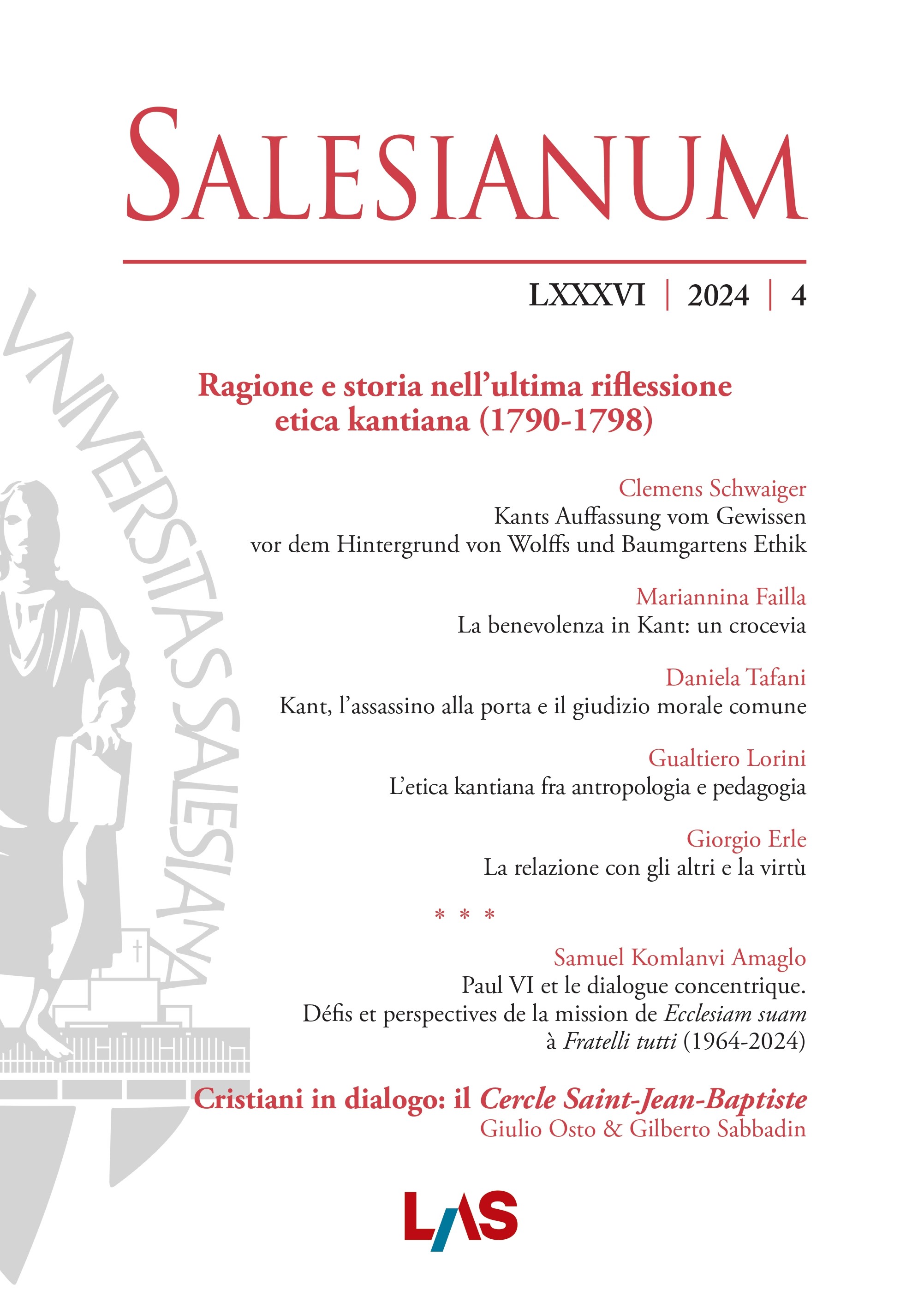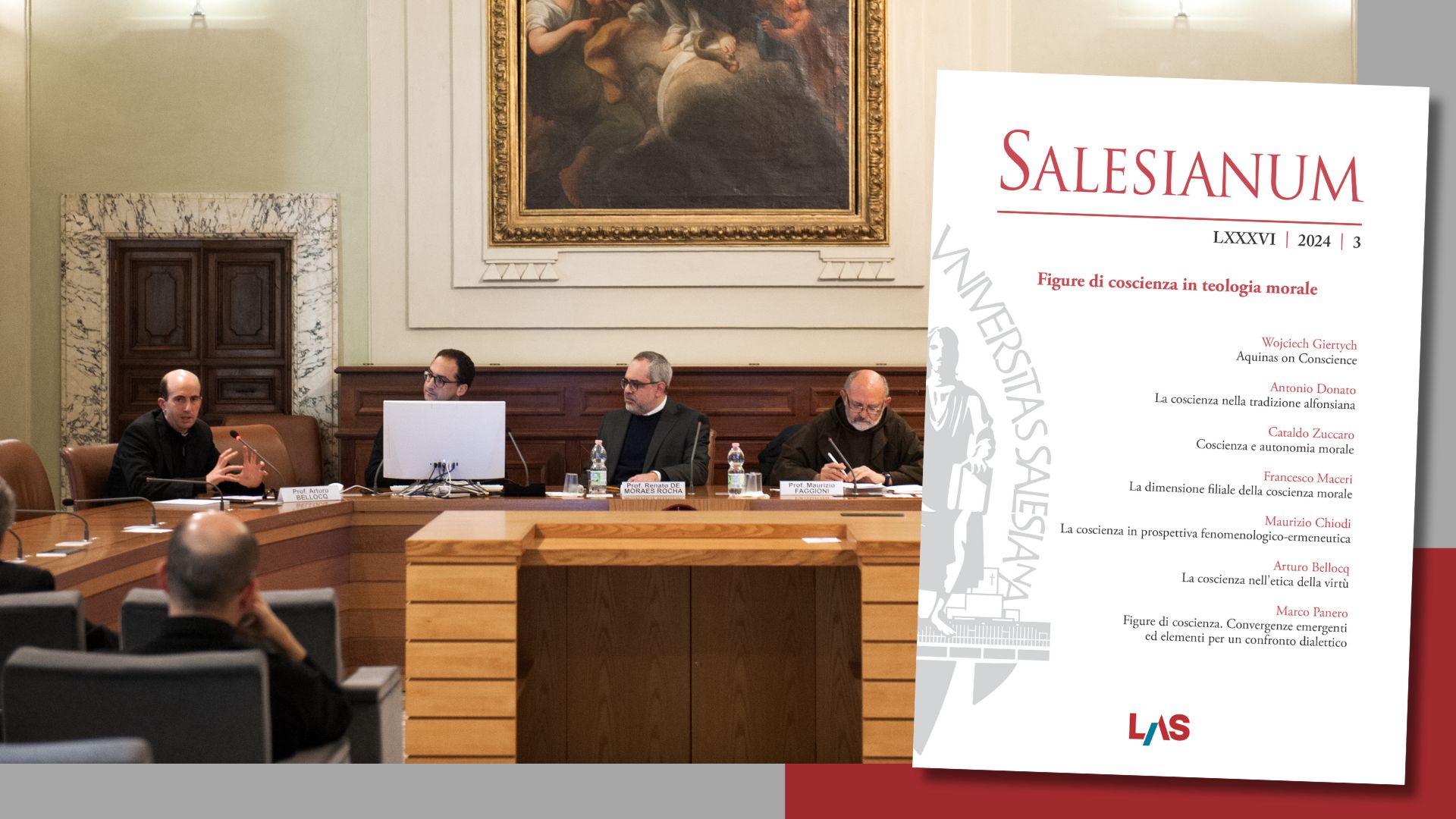Kant, l’assassino alla porta e il giudizio morale comune
Kant, the Murderer at the Door and Common Moral Judgement
Salesianum vol. 86 (2024) n. 4, 688-714Section: Studia
Received: 03-07-2024 - Approved: 12-08-2024
Sommario
Nel 1797, Kant sottoscrisse, rivendicandola, una tesi che Benjamin Constant aveva attribuito, con intento polemico, a “un filosofo tedesco”: neppure a un assassino che ci chieda se un nostro amico, da lui inseguito, si sia rifugiato in casa nostra, è lecito mentire. La risposta kantiana al dilemma dell’assassino alla porta e l’affermazione di un dovere incondizionato di veridicità sembrano, in virtù del loro carattere controintuitivo, mal conciliabili con la tesi kantiana che il giudizio morale comune sia affidabile, che il compito del filosofo morale sia un’analisi concettuale della morale esistente e che, quanto all’etica normativa, la filosofia non abbia nulla da dire, di diverso o di ulteriore rispetto a quanto l’uomo comune già non sappia da solo, né un diverso principio, tramite il quale giungervi.
L’articolo ricostruisce il vero oggetto della discussione tra Kant e Constant e presenta la concezione che induce Kant a respingere come non realistico il dilemma dell’assassino alla porta. La dottrina morale di Kant si fonda sulla concezione, largamente condivisa tra i suoi contemporanei, che esclude che il corso del mondo e le decisioni dei soggetti morali possano essere oggetto di calcolo, previsione e controllo, e che vede perciò, come costitutive della vita morale, due dimensioni, di cui quella prioritaria impone divieti il cui rispetto è sempre in potere di ognuno.
Parole chiave
L’assassino alla porta | Metaetica kantiana | Diritto di mentire | Amore dell’umanità | Veridicità
Abstract
In 1797, Kant asserted a thesis that Benjamin Constant had polemically attributed to “a German philosopher”: we are not allowed to lie, not even to a murderer who asks us whether a friend of ours who is being pursued by him has taken refuge in our house. Kant’s answer to the dilemma of the murderer at the door, which rules out the possibility of any exceptions to the duty of truthfulness, seems counterintuitive and difficult to reconcile with Kant’s thesis that common moral judgement is reliable. For Kant, the task of the moral philosopher is a conceptual analysis of existing morality, and philosophy has nothing to say about normative ethics other than, or in addition to, what the common man already knows.
The paper traces the real subject of the discussion between Kant and Constant and presents the conception that leads Kant to reject the dilemma of the murderer at the door as unrealistic. Kant believes that the course of the world and the choices of moral subjects cannot be objects of calculation, prediction and control and therefore, like his contemporaries, assumes two dimensions, as constitutive of moral life, of which the overriding one imposes prohibitions whose observance is always in the power of everyone.
Keywords
The murderer at the door | Kantian metaethics | Right to lie | Philanthropy | Truthfulness


